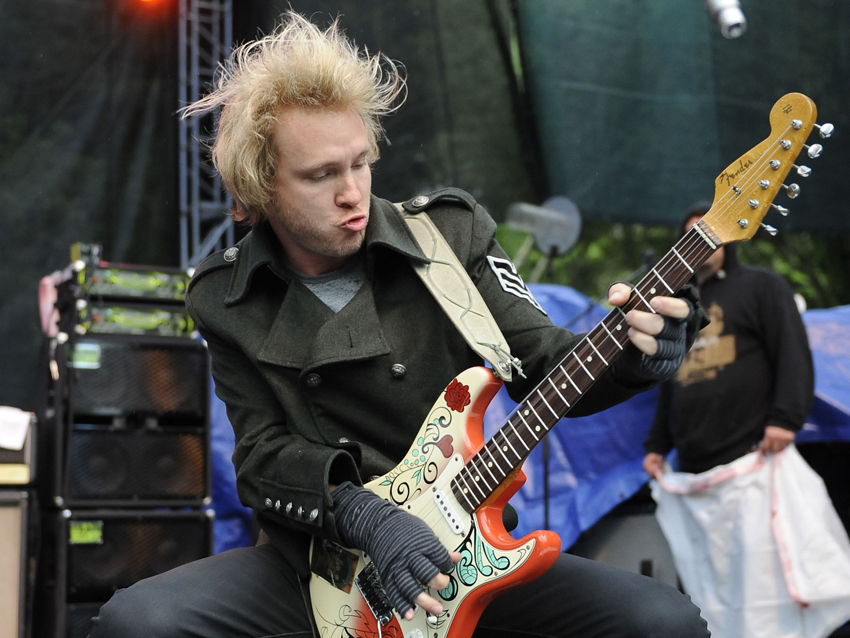
Kenny Wayne Shepherd: my top 5 not-so-guilty pleasures of all time
“I know what people must think," says Kenny Wayne Shepherd. "'Oh, Kenny Wayne Shepherd? He’s a blues guy. He must listen to blues all the time.’ But you know, that's not always the case.”
Although he's now regarded as one of the most popular practitioners of modern-day blues, Shepherd's childhood was filled with a varied menu of musical forms. His father was a general manager and on-air personality for several radio stations in the guitarist's hometown of Shreveport, Louisiana, and Shepherd recalls hearing "pretty much everything you can imagine on all the formats – Top 40, rock, country, you name it. Plus, I got to see just about any band that came to town. It was a great musical education."
As a teenager, Shepherd broadened his listening habits, checking out gospel, funk, R&B and Southern rock. Eventually, his tastes veered towards country and blues. "It was almost a toss-up between the two genres for me," he says. "A lot of people say that country is just blues with a twang. Driving to school, Shepherd often cranked Muddy Waters in his car – and he was startled to discover that his choice of music qualified him for outsider status. "I would try to talk to my friends about guys like Muddy Waters. They had no idea. So I always knew that my preferences were very different from most people my age."
Now a father of three (with another child on the way), Shepherd admits that he hears more than his fair share of non-blues around the house. "If I'm not playing music myself, you can imagine it's a lot of Disney and stuff like that," he says with a laugh. But he stresses that keeping an open mind is critical for making artistic leaps, even when working in an idiom as steeped in tradition as the blues.
"If you want to be a well-rounded musician, you really have to be a lover of music," Shepherd says. "You don’t have to love every genre, and you don’t have to like everything that you hear. But you should be open-minded to listening to other types of music. You might hear something that you really dig, and that might inspire you to do something different.”
On the following pages, Shepherd runs down his not-so-guilty pleasures, five albums off the blues beaten path that have found their way onto the guitarist's playlist.
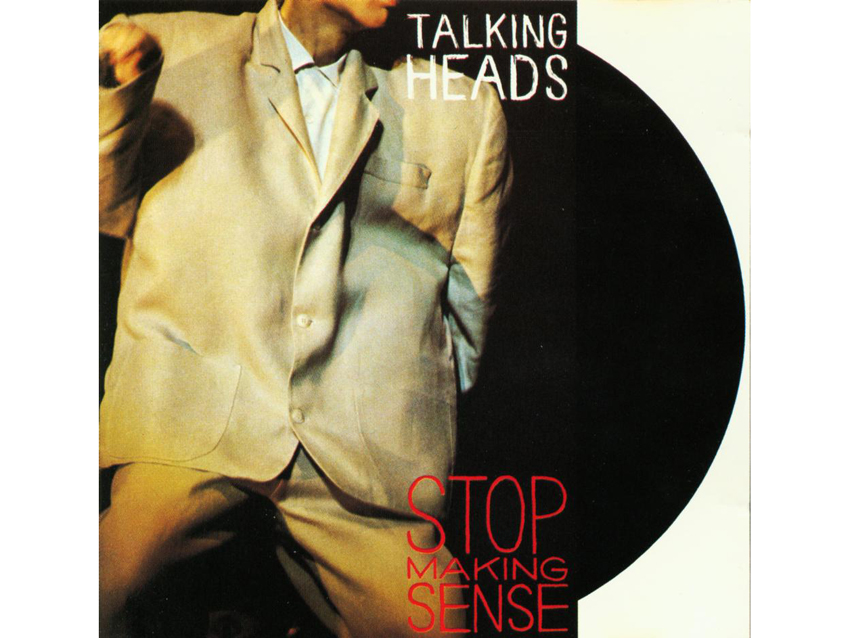
Talking Heads - Stop Making Sense (1984)
“Jerry Harrison was a member of the Talking Heads, and he produced a couple of my records – I would’ve been remiss if I didn’t check out what he did. The Talking Heads don’t have anything to do with the blues, but one of the things that I really dig about this record is that it’s live, and it captures the band doing their thing well.
“I’m a fan of music that makes people want to dance. Everything that I do, I try to do with a serious groove. I love to look out and see people having a good time and the music making their bodies move. The Talking Heads were very well known for that.
“Again, the live aspect of the recording is very cool to me. The band had a lot of tricks that they would do in the studio, and they had a lot of layers to their songs, but they could pull it off live. A lot of bands can make good records, but they can’t make their music translate to the stage.
“I love the opening track, Psycho Killer. In fact, I play it a lot in my car. I have a pretty amazing stereo in one of my cars – it’s absolutely sick – and when I want to show it off to somebody, that’s the song I’ll put on. It sounds incredible.”
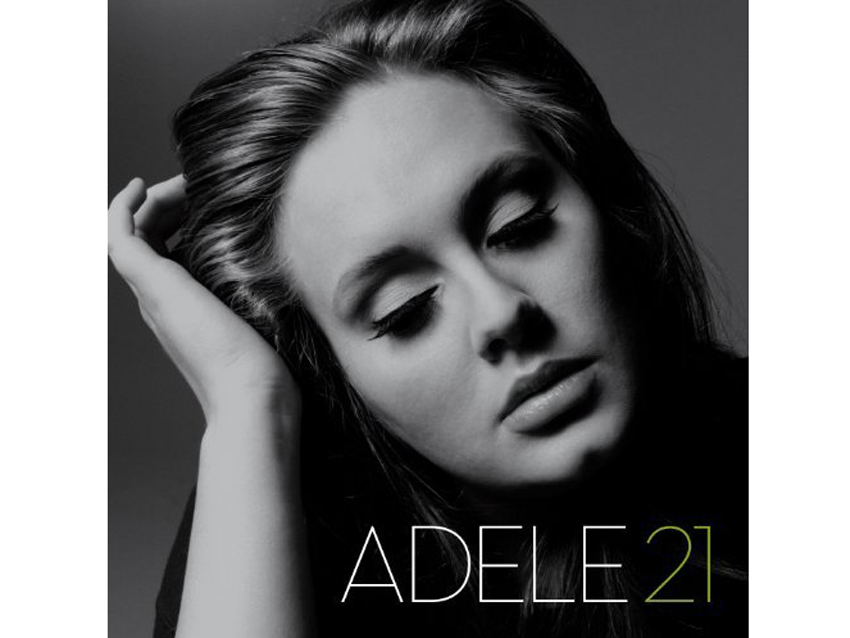
Adele - 21 (2011)
“My wife got turned on to Adele, and so I started hearing the record around the house whenever she would play it. I didn’t go seeking Adele out, and to be honest, when I hear people being labeled as pop stars, I’m a bit skeptical. But I have to admit that I think she's incredible.
“She’s got a lot of soul and blues in her voice, and the music is very well produced. It’s not too over-the-top cheesy, and it’s got a lot of credibility. I’ve become a fan. There’s something to be said for somebody who can really sing and has actual raw talent. Adele can certainly do it.”
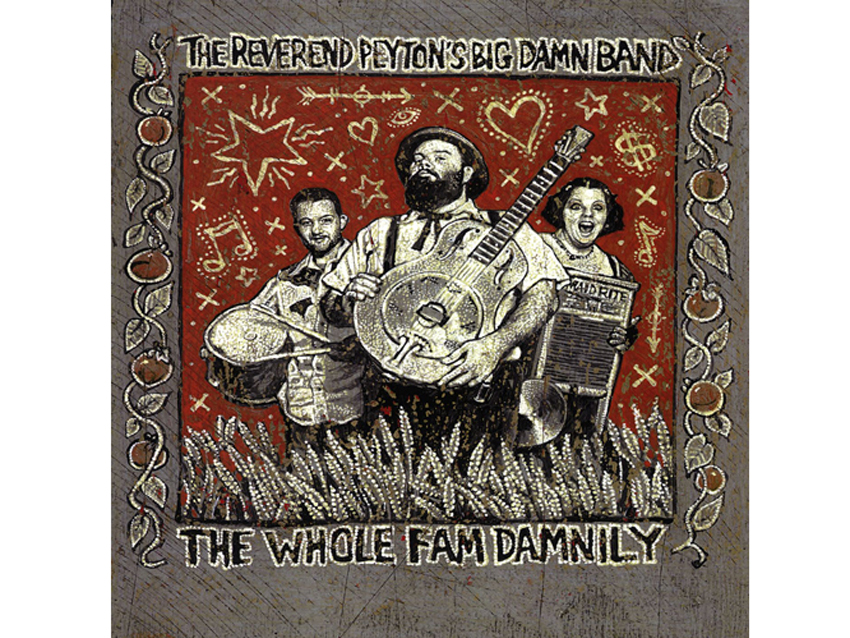
The Reverend Peyton's Big Damn Band - The Whole Fam Damnily (2008)
“I got turned on to this guy through John Mellencamp. We were hanging out at the Super Bowl last year in Indianapolis, and he was really impressed by the guy’s guitar playing and slide work. ‘Oh, you gotta hear this!’ he was saying. So I checked it out, and I dug it.
“He’s got an interesting sound. His playing is great, but the vocal is where it gets unique. Some people dig it, some people don’t. It’s hard to put a label on it. He sounds like a lumberjack singing. Try to picture some dude in a flannel shirt, walking through the backwoods with an axe and singing to himself. That’s what this is.
“I played it for my singer, Noah – he was a bit curious. The singing is not for everybody. So this is an oddball choice, but I really like it.”
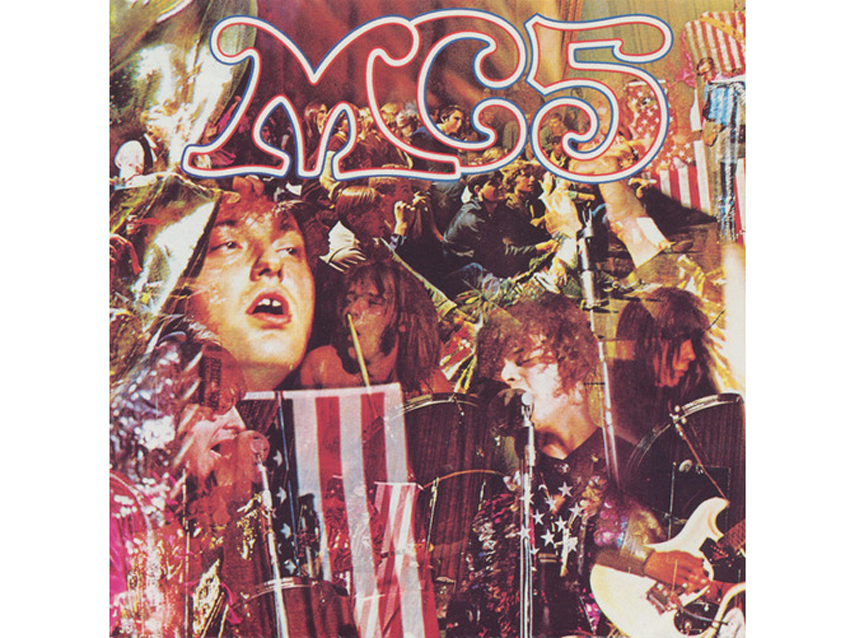
MC5 - Kick Out The Jams (1969)
“This record is kind of out of nowhere for a guy like me, but I really like the primal nature of the music. Wayne Kramer is a friend of mine, and he’s awesome.
“The band was just full-on. It seemed like anything went with those guys. They would go from moments of musical genius, with everything very tight and put together, to complete and total mayhem. Somehow or other, they managed to find their way back together again. It seemed like pre-determined chaos.
“They kind of started a musical movement. They were like the original garage band, and punk was a bit of a spin-off of the MC5’s generation. Plus, they’re from Detroit. I’m a big American car guy, so I love anything that comes out of Detroit.”
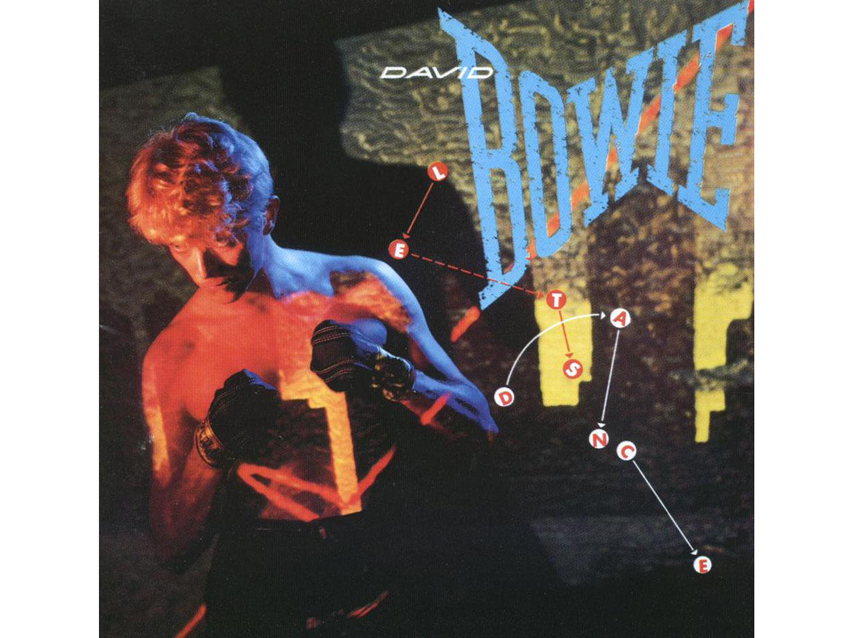
David Bowie - Let's Dance (1983)
“If you were looking through my iPod and checking out the iTunes, you’d find this album and go, ‘What? What’s that doing here?’
“To be honest, I wouldn’t have bought this record if Stevie Ray Vaughan didn’t play on it. That was the main reason right there. Let’s Dance is a decent song. Like with the Talking Heads, I'm a fan of anybody who can create music that makes people want to get on the dance floor and start moving.
“I was curious to check out the way the two different approaches worked together. David Bowie was very kind of ‘80s pop, and Stevie Ray was blues. What would they sound like combined? Sometimes it made sense, and sometimes it felt as if they just threw some blues guitar on top of David Bowie tracks.
“It was probably very innovative for its time. There’s a bit of over-the-top production, but overall it still sounds good. I still hear it come on the radio or when I’m walking around the shopping mall, so obviously it's not too dated or else they wouldn’t play it.”
Joe is a freelance journalist who has, over the past few decades, interviewed hundreds of guitarists for Guitar World, Guitar Player, MusicRadar and Classic Rock. He is also a former editor of Guitar World, contributing writer for Guitar Aficionado and VP of A&R for Island Records. He’s an enthusiastic guitarist, but he’s nowhere near the likes of the people he interviews. Surprisingly, his skills are more suited to the drums. If you need a drummer for your Beatles tribute band, look him up.
